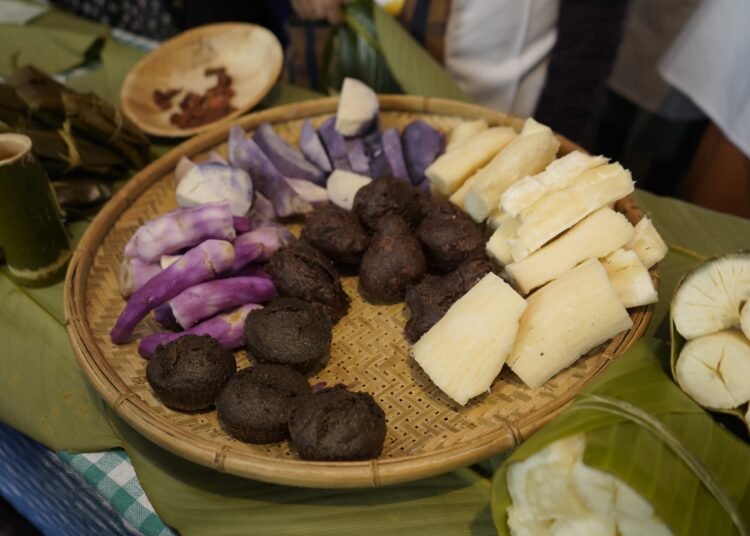The Hills on a Plate Festival, an ode to Meghalaya’s rich culinary heritage and cultural mosaic, kicked off here today with an inaugural ceremony.
Culinary connoisseurs, cultural enthusiasts, and local community members converged to immerse themselves in a day replete with enlightening speeches, mesmerizing performances, and a delectable array of gastronomic delights.
Chief Secretary Donald P Wahlang in his keynote address said that the festival is to celebrate Meghalaya’s sumptuous and diverse local cuisine. He described the event as a culinary journey, showcasing the region’s organic farming techniques and slow food tradition.
Highlighting the vibrant flavours of Meghalaya and the northeast, he expressed the festival’s aim to bring authentic local flavours to the forefront, encouraging appreciation for traditional farming and cooking methods.
Wahlang also emphasized on the importance of organic cuisine for both health and environmental reasons. Expressing his optimism for the festival’s future, he noted the potential for Meghalaya to become a renowned food destination akin to Goa.
Director of Toursim Cyril V Darlong Diengdoh said that the food fiesta is a continuation of the effort to take Meghalaya tourism forward in terms of creating these value-added products that can become the pull for tourists to come to the state of Meghalaya.
“I’m sure that with this type of initiative, we can build and brand the culinary experiences of Meghalaya Tourism. And I wish that this two-day festival will really throw up many ideas and take Meghalaya tourism one notch forward, with this Hills on a Plate being a unique thing that we can put forward to the world,” he said.
Festival Curator Gayatri Desai gave an insight into the festival’s significance and its overarching goals of cultural preservation and culinary exploration.
The highlight of the ceremony was a discourse by Professor Jyoti Prakash Tamang, whose profound knowledge and expertise shed light on the culinary traditions and practices unique to the region. “Examining global food cultures, we see regional variations in staple foods and fermentation practices. For instance, while Eastern cultures favour rice and fermented soybeans, Western diets revolve around wheat and dairy products,” he said and added, “Fermented foods embody the wisdom of our ancestors, providing not only nourishment but also promoting health and well-being. Let us cherish and preserve these culinary treasures for future generations.”
Star Chef Jason White shared his inspirations and aspirations, emphasising the festival’s role as a platform to highlight the region’s culinary treasures to the world.
Amidst the festivities, attendees indulged in a culinary journey, fostering bonds and camaraderie amidst the diverse gathering.
The afternoon session unfolded with captivating performances, highlighting the rich folklores of Tungrymbai, Tungtap, and Bitchi, providing a glimpse into the cultural richness of Meghalaya.
White further engaged participants with an interactive workshop, imparting practical insights and skills essential for culinary exploration and appreciation.
























